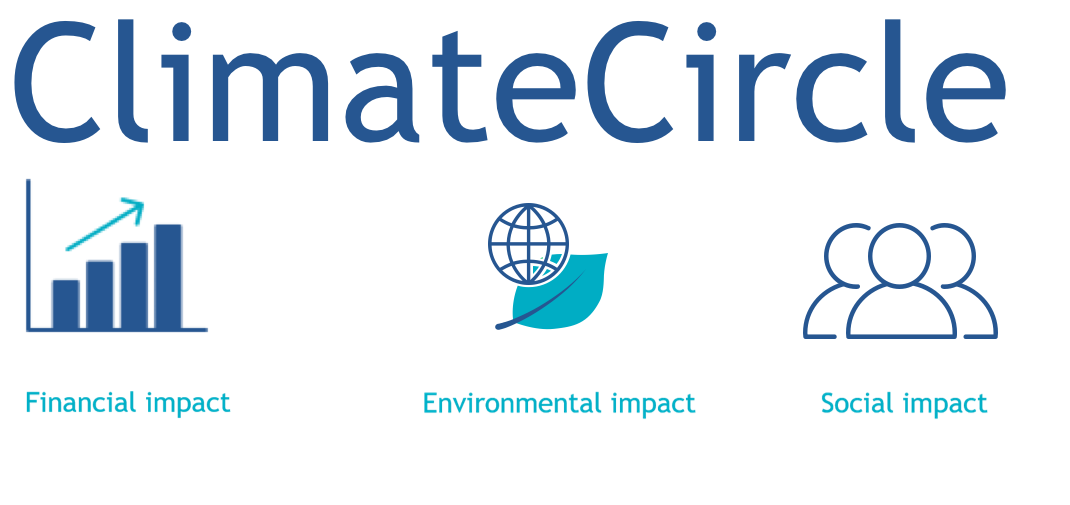Saskia Reus-Makkink, Founder and CEO of Africa Funded, shares some insights on circular economy business models.
As a leading incubation and seed fund managing company, Africa Funded increasingly supports innovative emerging market entrepreneurs with circular economy business models.
In the ‘circular economy’, the central aim is achieving systems without waste and/or pollution, from the perspective that the regular, linear 'take–make–dispose' model wastes large amounts of materials, energy and labor. In the circular economy the aim is to keep products, components and materials at their highest utility and value throughout product life cycles of use and reuse. Two material flows are distinguished: biological cycles, reentering the biosphere safely, and technical cycles, designed to circulate back into production systems at high quality.
Many opportunities exist in developing market sectors related to circular economy principles. And in many areas emerging markets can also benefit from advantages over industrialized countries.
Examples from Africa Funded
Africa Funded cooperates with more and more companies building expertise in circular economy business models. With the emergence of the circular economy new service models are coming up. Examples of companies Africa Funded currently works with are Sanivation, Trace and Safi Sana.
Sanivation, based in Kenya, is an example of a company supported by Africa Funded that creates renewable energy out of human and organic waste, sanitizing human waste. The company installs container-based toilets inside people's homes for free, and charge a monthly subscription for waste collection, transforming collected waste into charcoal briquettes. Sanivation recently secured funding for their pilot. Africa Funded supported Sanivation in developing a service model providing their services to landlords and rose farms, providing scaling opportunities for safe sanitation service access in Africa. Currently there is more demand by BBQ restaurants for their charcoal, as it burns longer and has less smoke than traditional charcoal. Africa Funded continues to support the company towards follow on funding.
The company Trace, also supported by Africa Funded, matches solid waste problem in Kenya with demand for construction materials and reduces water pollution issues. Providing waste collection services, Trace recently secured funding for their pilot and recently secured a considerable amount of follow-up funding as well. This summer the entrepreneur will travel to the US for a Mandela Washington Fellowship opportunity ending with a town hall meeting with President Barack Obama in August.
Both Sanivation and Trace received funding for their business pilots via the Africa Funded supported Incubator for Water, Sanitation and Solid Waste. Both entrepreneurs participated in the VIA Water Innovation Challenge managed by Africa Funded and continue to be supported during their pilots to validate and fine-tune their business models.
Outside inspiration
Next to working with entrepreneurs in Africa and other emerging regions Africa Funded frequently participates in forums on innovation and entrepreneurship around the world. We recently visited an inspirational session hosted by international WASH non-profits VIA Water and IRC. Innovative Dutch architect Thomas Rau spoke on the circular economy, introducing waste as ‘material without identity’ and recycling as ‘giving waste an identity’. Below are three takeaways from this event.
- Get the right answers by inquiring at those who have the best practices in providing the solutions you look for
If you want to limit the steel that is used when constructing a roof of steel and you ask a steel producing company for advice, chances are you’ll not get the best answers, because the business model of whom you ask is to sell steel. You need to ask someone who has the business model of using as less steel as possible when making constructions. Architect Thomas Rau gave the example of asking a rollercoaster producer for advice for this specific example and ending up with a construction reducing steel use with one third.
- Ask open questions, not solutions
When it comes to working out a solution in a specific area of sustainability and you are not the expert, don’t ask for features but try to step back and find the more general question behind the specific question. If you need light, don’t ask for lamps but for light. You might think you need lamps, but that’s where innovation starts. For example, a business model where you pay light per lux is an alternative solution versus buying lamps and paying for the electricity bill. By paying per lux the producer of the light has the incentive to bring down electricity costs. 30% reductions on electricity used were measured by implementing the pay-per-lux model.
- From ownership to stewardship, from production to service models
Companies in the business of selling products often first have to source materials and produce products, then sell them, after which materials again have to be sourced. Instead of selling the products and losing the raw materials, an alternative could be to lease them out while keeping access to the raw materials. This could mean lower depreciation and using products in multiple cycles. Service models provide more stable turnover as compared to product sales. Producers and users can then have a performance contract: maintain, repair, refurbish, reuse… We just have to learn to think in different models.
The circular economy concept clears the way for new business models and growth opportunities for innovative businesses in developing countries. Connect with Saskia Reus-Makkink of Africa Funded for specific questions/support.

